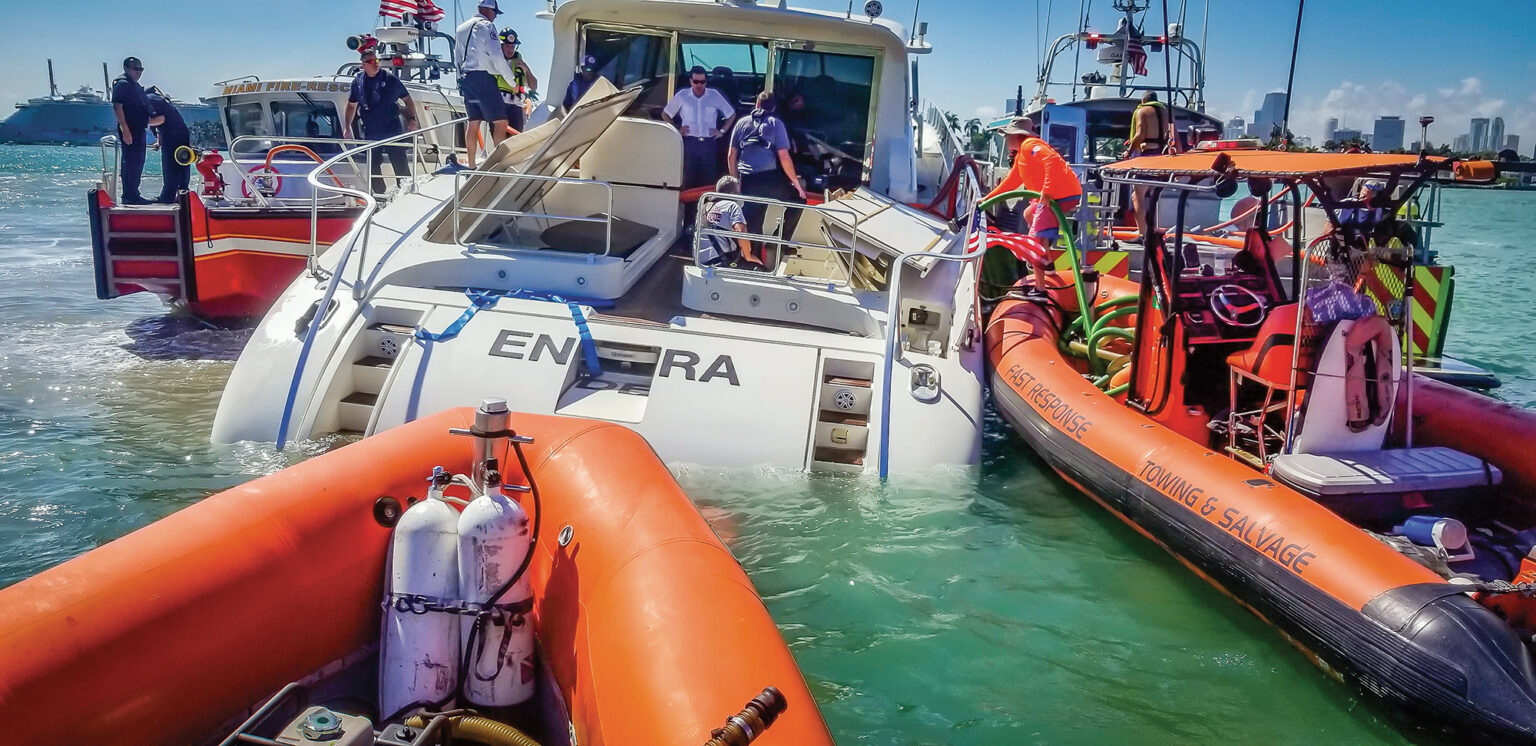Bevezetés
The maritime world often brings unexpected challenges that can leave even seasoned skippers in sticky situations. Understanding the differences between towing and salvage operations can make all the difference when your boat requires assistance. This article delves into those pivotal distinctions, highlighting what boat owners need to know about these services, especially regarding their implications for maritime adventures.
Boating Challenges and Assistance
Boating is an exhilarating experience filled with adventure, but sometimes, things can go awry. In moments of distress, the assistance of fellow boaters or professionals becomes crucial. While coast guards and other Good Samaritans used to handle most towing scenarios for free, contemporary practices have shifted towards professional towing services that come at a considerable cost. If the case escalates to salvage, the financial implications can increase significantly.
The Essence of Marine Salvage
Marine salvage, although not akin to piracy, often carries a hefty price tag. Towing a vessel back to safety is generally simpler and may be covered by membership services like those found in many towing companies. However, if a vessel is on the rocks or in a critical situation, the rescue operation becomes salvage—requiring specialized training, equipment, and sometimes, heroic endeavors. The professionals undertaking these missions rightfully deserve compensation reflective of the boat’s value, which can mean the bill skyrockets unexpectedly.
Why Understanding Cost is Crucial
The distinction between towing and salvage becomes essential when considering potential costs. While towing usually offers straightforward pricing—often bundled in membership plans—salvage operations depend on various factors, including the vessel’s value and the complexities involved in the recovery process. Boat owners often find themselves astonished when confronted with a bill equivalent to a significant percentage of their boat’s total worth after a salvage operation.
What Constitutes Towing vs. Salvage?
According to international guidelines, salvage occurs when a vessel is in peril—a term that many towing companies, especially in the U.S., refer to as being in danger. For example, if your boat breaks down and is drifting toward a dangerous area, even the simple act of towing may be classified as salvage due to the potential danger present.
Membership Services and Their Coverage
Most towing services offer annual memberships, covering basic towing scenarios, fuel drops, and jumpstarts. However, this coverage typically excludes salvage operations, which arise when conditions warrant undertaking more dangerous rescues. For instance, if equipment beyond a single towline is required, the situation shifts into salvage territory, leading to additional costs. This highlights the importance of understanding your coverage before heading out on the water.
Determining Costs and Legal Agreements
When a boat is in need of urgent assistance, expect to encounter salvage contracts outlining your financial responsibilities during recovery. Many salvors utilize standard agreements to formalize the arrangement. Signing these contracts may bind the vessel owner to pay an undisclosed amount determined post-recovery. It can feel quite precarious to commit to paying a significant sum without knowing the exact cost beforehand.
The Principle of No Cure, No Pay
Salvage typically operates under a “no cure, no pay” principle, which means if the salvor fails to save your vessel, you owe nothing. However, if the salvor prevents environmental damage, they may still charge for this service. The potential for exorbitant costs amplifies the importance of maintaining your vessel, as most towing calls stem from preventable issues.
Real-Life Salvage Stories
There are various anecdotes surrounding salvage scenarios, some underscoring the importance of understanding the financial dynamics involved. For example, a center-console fishing boat faced a bill of $30,000 after a relatively simple salvage operation, illustrating how situations can escalate—sometimes leading to disputes over whether a rescue was warranted.
Avoiding Unnecessary Trips to Salvors
In an effort to reduce the need for salvage, boat owners should focus on regular maintenance, ensuring equipment is in optimal condition. Simple preventive steps such as checking seals, ensuring anchors are sufficient for changing conditions, and maintaining a vigilant watch over on-board activities can significantly decrease the likelihood of demanding tow or salvage services.
Key Takeaways
Understanding the difference between towing and salvage is vital for any boat owner—especially when embarking on maritime adventures. The financial implications can be significant if a situation escalates from a straightforward tow to a more complex salvage operation. Take note that while your vessel’s condition may affect its operational performance, ensuring diligence in maintenance can prevent many “Oh, crap!” moments.
Planning Your Next Adventure
As with any form of travel, keeping the sailing spirit alive entices many to explore new coastal destinations. Incorporating the understanding of towing versus salvage can make a trip more enjoyable, minimizing potential stress when experiencing unforeseen challenges on the water. Should you consider venturing into beautiful harbors and bays, remember that renting a boat serves as the gateway to discovering a maritime paradise. Each inlet and lagoon unveils its charm, offering an experience as rich as the local cuisine and vibrant coastal culture. For your next sailing adventure, fitting it all together can lead to unforgettable memories that the ocean has to offer—don’t hesitate to explore GetBoat.com.
In summary, the differences between towing and salvage cannot be overstated. Enhancing your boating experience necessitates familiarity with key terms and conditions, which revolves around safety and financial prudence. Keep those nautical adventures alive—go forth, sail, and explore!

 Towing vs. Salvage: Key Differences Explained">
Towing vs. Salvage: Key Differences Explained">
